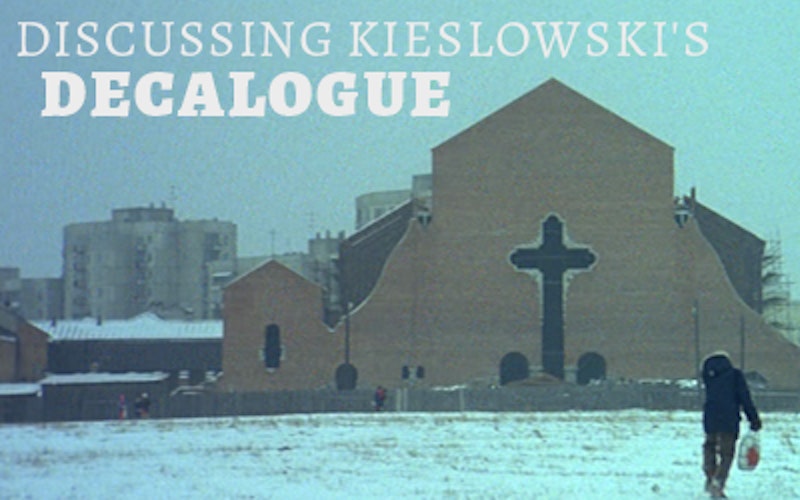
Movies
Discussing Kieslowski’s Decalogue IX
This is part of a joint series with Elijah Davidson of Reel Spirituality, in which we’re considering each installment of The Decalogue. Krzysztof Kieslowski's landmark collection of short films was first released on Polish television in 1989 and is based on each of the Ten Commandments. Please join our conversation in the comments.
As we near the end of this series with Decalogue IX, Elijah, I’m beginning to wonder: have we been working our way from the strict demands of the Ten Commandments toward the reconciliation that the Law ultimately encourages?
Since the merciless bleakness of Decalogue V – still the standout installment in my opinion – I’ve felt the subsequent films have ended, if not always happily, in hints of reconciliation. In Decalogue VI, a woman and her peeping Tomek come to a deeper understanding of sexuality after exploiting each other in various ways. Admittedly, the modern fairy tale of Decalogue VII ended in dismay and separation, but then Decalogue VIII provided the strongest narrative of hope yet: the reunion of two women who had been separated by decades of misunderstanding.
Have we been working our way from the strict demands of the Ten Commandments toward the reconciliation that the Law ultimately encourages?
And now we have Decalogue IX, in which a husband and wife struggle with his impotence, putting the Biblical command concerning covetousness to a difficult test. After failing in various ways, they arrive at (spoiler!) a renewed sense of commitment.
Despite its soap-opera tendencies (I’d describe this as the most melodramatic of the bunch), I found Decalogue IX very affecting. It’s structured as the statement of an ideal – a proclamation of the Law - and then the charting of the rough road this couple takes trying to meet it. Upon receiving the doctor’s report concerning her husband (Piotr Machalica), the wife (Ewa Blaszczyk) says, “The things we have are more important than the things we don’t have.” Yet it isn’t until they’ve endured betrayal, suspicion and fear that the couple truly commits to living in contentment.
There’s something in the way Kieslowski frames that commitment – via the telephone, which has previously been a threatening object in the film – that helped me believe in it more than I did in the “renewal of vows” between a husband and wife in Decalogue III. We differed on that ending, Elijah: you saw it as a moment of reconciliation, while I felt it had an air of obligation/resignation. How does the ending of Decalogue IX compare for you? And would you agree with my overall reading of The Decalogue as trending toward reconciliation, or do I just want to end this series on a note of Gospel hope?
Topics: Movies